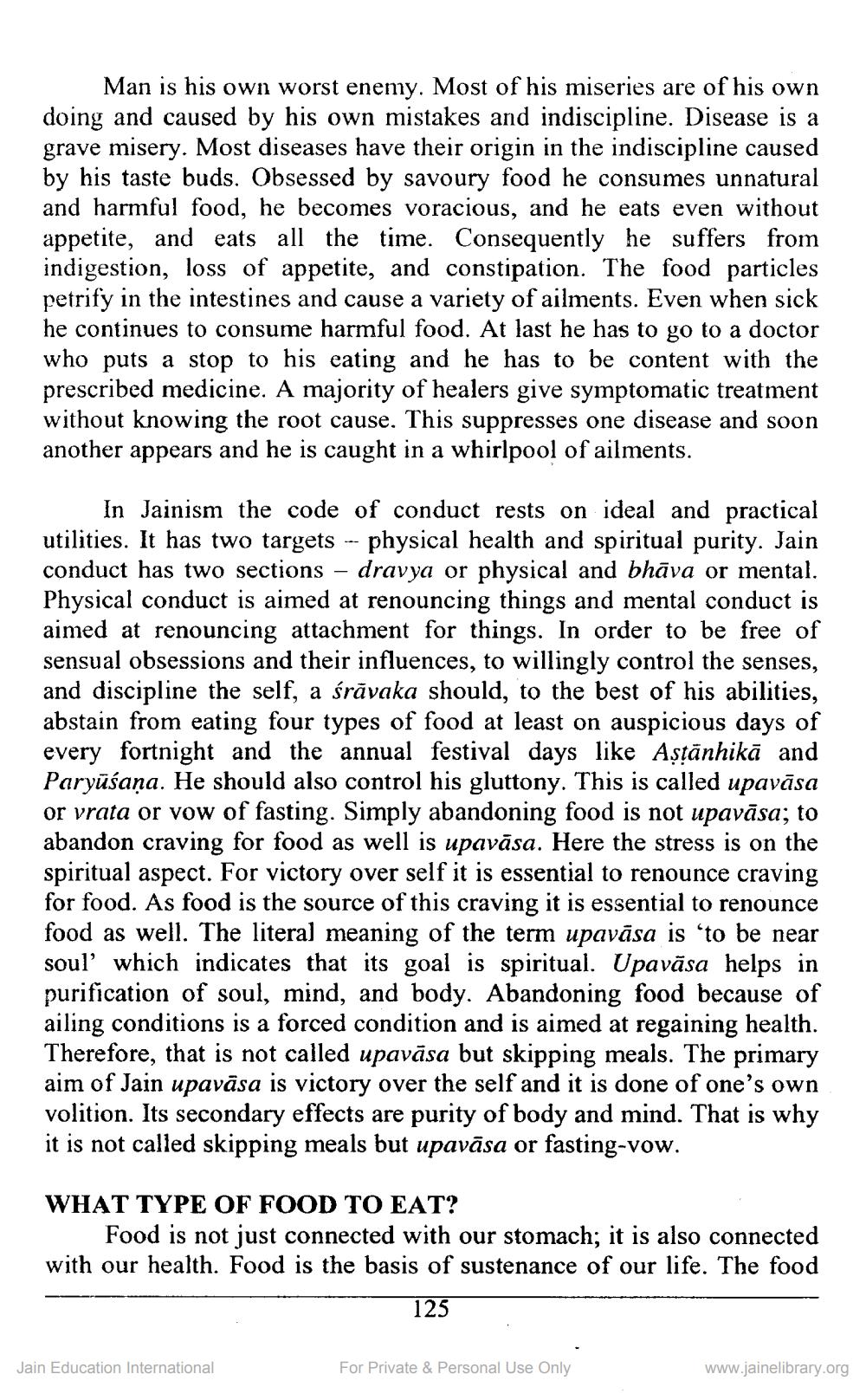________________
Man is his own worst enemy. Most of his miseries are of his own doing and caused by his own mistakes and indiscipline. Disease is a grave misery. Most diseases have their origin in the indiscipline caused by his taste buds. Obsessed by savoury food he consumes unnatural and harmful food, he becomes voracious, and he eats even without appetite, and eats all the time. Consequently he suffers from indigestion, loss of appetite, and constipation. The food particles petrify in the intestines and cause a variety of ailments. Even when sick he continues to consume harmful food. At last he has to go to a doctor who puts a stop to his eating and he has to be content with the prescribed medicine. A majority of healers give symptomatic treatment without knowing the root cause. This suppresses one disease and soon another appears and he is caught in a whirlpool of ailments.
In Jainism the code of conduct rests on ideal and practical utilities. It has two targets -- physical health and spiritual purity. Jain conduct has two sections - dravya or physical and bhāva or mental, Physical conduct is aimed at renouncing things and mental conduct is aimed at renouncing attachment for things. In order to be free of sensual obsessions and their influences, to willingly control the senses, and discipline the self, a śrāvaka should, to the best of his abilities, abstain from eating four types of food at least on auspicious days of every fortnight and the annual festival days like Aştānhikā and Paryūšaņa. He should also control his gluttony. This is called upavāsa or vrata or vow of fasting. Simply abandoning food is not upavāsa; to abandon craving for food as well is upavāsa. Here the stress is on the spiritual aspect. For victory over self it is essential to renounce craving for food. As food is the source of this craving it is essential to renounce food as well. The literal meaning of the term upavāsa is to be near soul which indicates that its goal is spiritual. Upavāsa helps in purification of soul, mind, and body. Abandoning food because of ailing conditions is a forced condition and is aimed at regaining health. Therefore, that is not called upavāsa but skipping meals. The primary aim of Jain upavāsa is victory over the self and it is done of one's own volition. Its secondary effects are purity of body and mind. That is why it is not called skipping meals but upavāsa or fasting-vow.
WHAT TYPE OF FOOD TO EAT?
Food is not just connected with our stomach; it is also connected with our health. Food is the basis of sustenance of our life. The food
125
Jain Education International
For Private & Personal Use Only
www.jainelibrary.org




